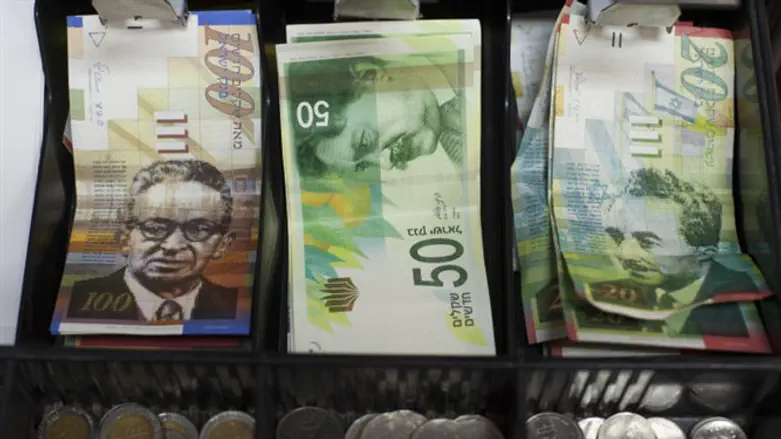
Israel’s Finance Ministry is pushing to limit the use of cash in private business transactions, both between customers and businesses, as well as between private individuals.
Based on the findings of a July 2014 report by the Committee to Examine Reducing the Use of Cash in Israel’s Economy, headed by Harel Locker, the Finance Ministry is pushing to pass legislation which would cap the amount of cash private parties may use in monetary transactions of any sort.
Transactions between a business and an individual would be limited to no more than 5,000 shekels ($1,435), while transactions between two private individuals would capped at 25,000 shekels ($7,175).
The 2014 report, known as the “Locker Report”, was commissioned by the previous Netanyahu government in 2013, with the aim of finding ways to increase tax revenue and combating what it dubbed the “shadow economy”.
“Based on Israel Tax Authority estimates, about one-fifth of economic activity in Israel is unreported - that is, the shadow economy!” the report claims.
“The implication of the shadow economy in Israel is loss of tax revenues of about NIS 40–50 billion [$11.5 - $14.4 billion] per year, an amount equal to nearly the entire shekel budget of Israel’s Ministry of Defense, Ministry of Health, or Ministry of Education.”
“With this amount, the VAT rate could be dramatically reduced, thus reducing the cost of living, or alternatively the rate of tax on labor income could be reduced. As another illustration, income tax receipts from employees in the economy total around NIS 40 billion—an amount similar to the tax revenues lost due to the shadow economy. That is, for every shekel of income tax collected from an employee, another citizen is evading a shekel in taxes to the state’s coffers.”
Knesset Finance Committee Chairman Moshe Gafni (United Torah Judaism) has agreed to advance the proposal, which would be implemented in two stages – with initial caps of 10,000 shekels ($2,870) on transactions between businesses and individuals and 50,000 shekels ($14,350) on transactions between two private individuals.
Locker added that the proposal is part of a larger move “toward a cashless society”.
“In a digital age, cash will have no significance. It is appropriate that in this issue as well, the State of Israel lead the process and enter the new age in a prepared and innovative manner.”
Cash payments above the stipulated amount “will be a criminal offense and will lead to sanctions,” the report recommends, adding that the use of checks will also be limited.
The 53-page Locker Report gives little insight into how the law would be enforced, as those using unreported cash payments to avoid taxation are already in violation of existing tax laws.
The report acknowledges that the proposal would impose some hardship on the 300,000 Israelis who have no bank account, many of whom are barred from opening most bank accounts – including those who have declared bankruptcy.
The rapid growth of crypto currencies – like Bitcoin – which could serve as a replacement for cash in unreported transactions the Locker Report seeks to crack down on, was not addressed by the committee.
